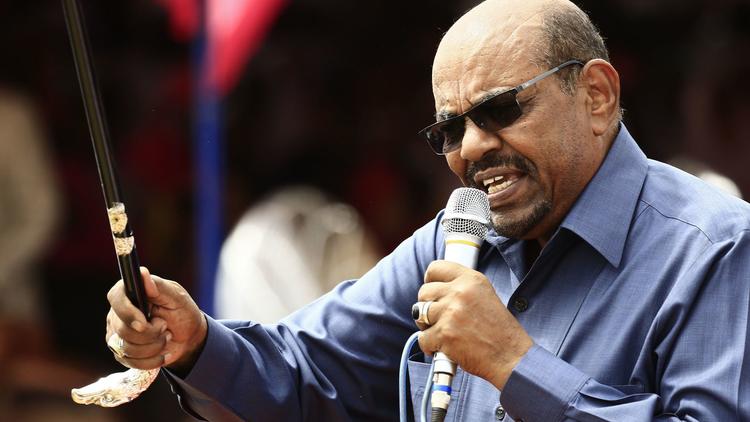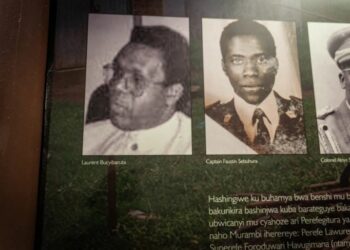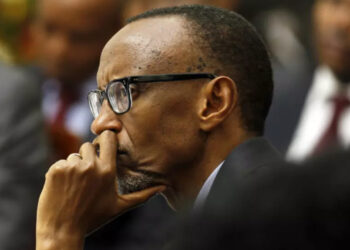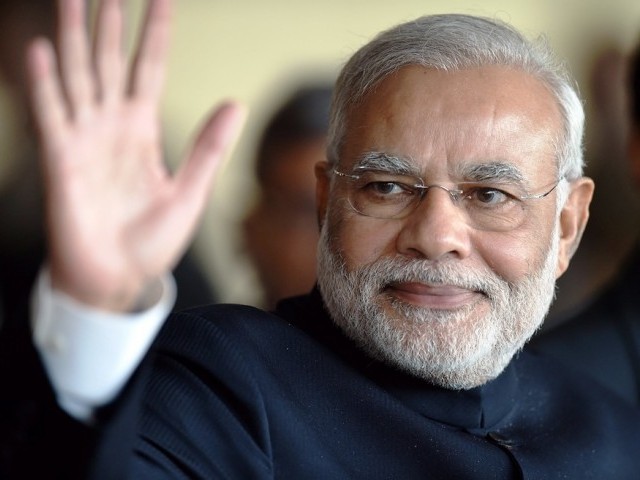Sudanese leader Omar al-Bashir, long wanted on genocide and war crimes charges, was finally brought down in a popular uprising by the very people he ruled with an iron fist for 30 years.
One of Africa’s longest-serving presidents, the 75-year-old had remained defiant in the face of months-long protests that left dozens of demonstrators dead in clashes with security forces.
But his fate was sealed when the army bowed to the demands on the street and intervened on Thursday to oust Bashir, who swept to power in a coup backed by Islamists in 1989.
In what was clearly a last ditch effort to quell the protests, Bashir had imposed a state of emergency on February 22 after an initial crackdown failed to rein in the demonstrators.
At first, the emergency rule curbed the scale and intensity of the protests, but before long demonstrators staged a massive rally outside the military headquarters that reverberated with chants of “overthrow, overthrow.”
Tonight – day three of Sudan's mass sit-in… pic.twitter.com/i7AFUn75Dv
— Yousra Elbagir (@YousraElbagir) April 8, 2019
Bashir’s last-minute overtures offering to hold dialogue with youths and acknowledging their economic concerns were legitimate failed to pacify the protesters.
For years the Sudanese leader had proven himself to be a political survivor, evading not only the International Criminal Court (ICC) but also a myriad of domestic challenges.
A career soldier, Bashir was well known for his populist touch, insisting on being close to crowds and addressing them in colloquial Sudanese Arabic.
He was indicted by the Hague-based ICC in 2009 on war crimes charges over a long-running conflict in Darfur, but went on to win re-election twice in polls boycotted by opposition groups.
In 2010, he was also indicted by the ICC for alleged genocide.
But it was a government decision to triple bread prices that brought protesters onto the streets in December last year, as the country grappled with regular shortages of food, medicines and foreign currency.
The protests morphed into nationwide demonstrations against Bashir’s rule, triggering unrest that also left hundreds wounded and thousands jailed.
Bashir addressed several loyalist rallies, promising to promote economic development and peace across the country, but his words fell on deaf ears.
Defiant to The End
Known for his trademark dancing and waving of a stick before addressing loyalists, Bashir had defiantly said at a recent rally of supporters that “demonstrations will not change the government.”
But as the pressure on the street grew, he stopped talking of bidding for a third presidential term in a vote that had been due to be held next year.
https://twitter.com/iAlaaSalah/status/1116270721037144065
Despite the ICC indictments, Bashir had regularly visited regional countries and also Russia.
Days before the protests erupted he traveled to Damascus to meet Syria’s President Bashar al-Assad, becoming the first Arab leader to do so since the Syrian conflict began in 2011.
At home, Bashir last year hosted talks between neighboring South Sudan’s leaders, helping to broker a tentative peace deal after five years of intense conflict in the world’s newest country.
South Sudan had gained its independence in 2011, when Bashir surprised his critics by giving his blessing to a secession that saw the south take the bulk of Sudan’s oil fields, some six years after a peace deal ended two decades of north-south conflict.
He also joined a Saudi-led coalition against Shiite rebels in Yemen, improving ties with resource-rich Gulf nations, although the policy had been criticized by his opponents at home.
Bashir, who has two wives and no children, was born in 1944 in Hosh Bannaga, north of Khartoum, to a farming family.
He entered the military at a young age, rising through the ranks and joining an elite parachute regiment.
He fought alongside the Egyptian army in the 1973 Arab-Israeli war.
In 1989, then a brigade commander, he led a bloodless coup against the democratically elected government.
Bashir was backed by the National Islamic Front of his then mentor, the late Hassan al-Turabi.
Hosting bin Laden
Under Turabi’s influence, he led Sudan towards a more radical brand of Islam, hosting Al-Qaeda founder Osama bin Laden and sending jihadist volunteers to fight in the country’s civil war with the south Sudanese.
In 1993, Washington put Sudan on its list of “state sponsors of terrorism” and four years later slapped Khartoum with a trade embargo – only lifted in 2017 – over charges that included human rights abuses.
Bashir sought to end Sudan’s isolation in 1999, ousting Turabi from his inner circle.
But when insurgents launched a rebellion in Darfur in 2003, his government’s decision to unleash the armed forces and allied militia brought him further international criticism.
More than 300,000 people have been killed in the Darfur conflict, the U.N. says, and more than two million displaced.
Since 2011, Bashir also faced insurgencies in South Kordofan and Blue Nile states, launched by the Sudan People’s Liberation Army-North.
More on the Subject
Sudanese women are taking a leading role in protests against President Omar al-Bashir, which have gained added inspiration from the demonstrations in Algeria, opposition figures said at a London conference.






















